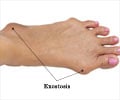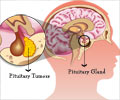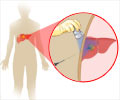A unique subset of tumor associated neutrophils (TANs) have been idenfied in samples from early-stage human lung cancers.

‘A unique subset of tumor associated neutrophils (TANs) that exhibit hybrid characteristics of two immune cell types - neutrophils and antigen-presenting cells - have been identified in samples from early-stage human lung cancers.’





Senior author Evgeniy B. Eruslanov, a research assistant professor from the Department of Surgery, and colleagues published their findings this month in Cancer Cell. The goal of this research was to characterize TANs and determine their specific roles in the regulation of T cell responses in patients with early-stage lung cancer. Understanding the role of TANs in regulating T cell responses in cancer patients is particularly important because cytotoxic T lymphocytes are the chief effector cells mediating antitumor immunity.
"We tried to ascertain the function of this hybrid subset of TANs," Eruslanov said. "Are they there to help the tumor grow or to fight its existence? We show that small size, early-stage lung tumors can induce the formation of a unique type of tumor-associated cells that can trigger and support anti-tumor T cell responses, thus potentially limiting the growth of the cancer."
To figure out how to harness natural anti-tumor capabilities of immune cells, they needed to know what happens in human tumor tissue. This was made possible by coauthor Sunil Singhal, an associate professor of Surgery, who provided fresh tumor tissue from lung-cancer patients and participated in research.
"Our findings demonstrate that the early-stage lung tumor microenvironment can drive neutrophils to differentiate into a cell subset with enhanced anti-tumor capabilities. Interestingly, this hybrid population disappears as tumors enlarge," Singhal said.
Advertisement
"We want to take advantage of these unique early tumor neutrophils to help them better stimulate the anti-tumor cytotoxic T cells," Eruslanov said. "Perhaps if we can expand the hybrid neutrophils in patients early on, we can augment anti-tumor T cell activity."
Advertisement















